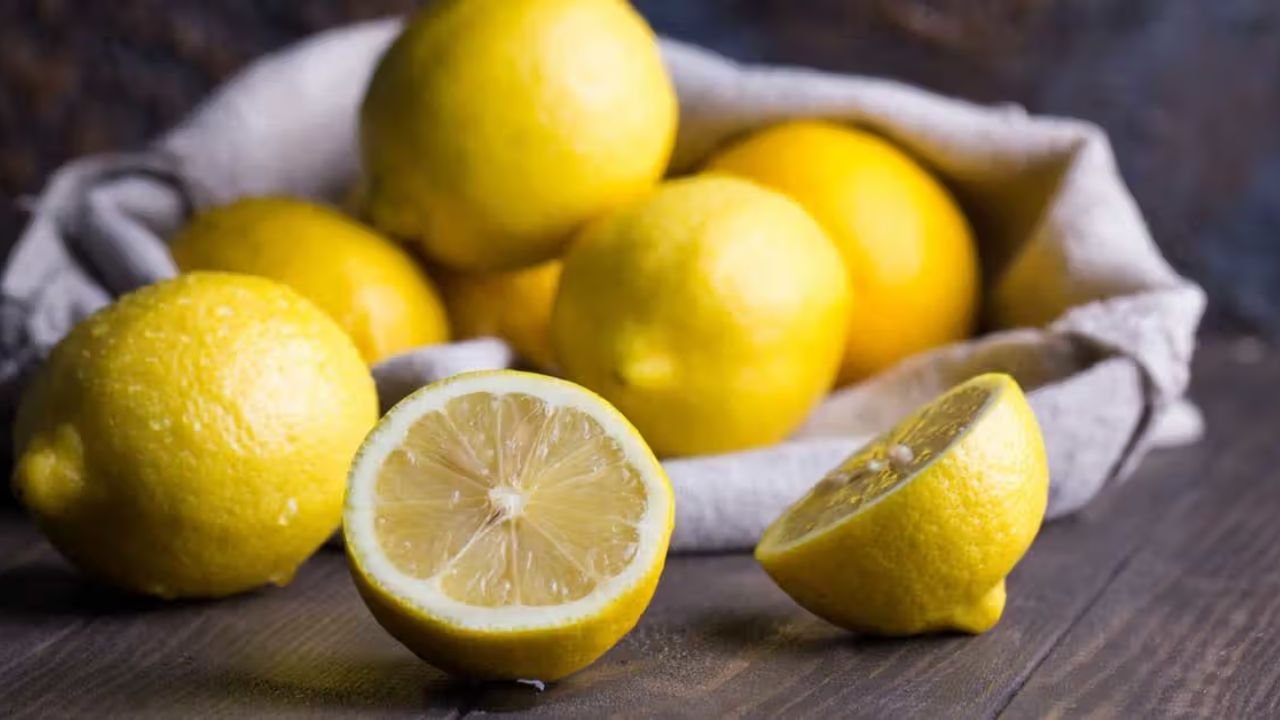Citric acid is one of the most widely used food ingredients in the world. It naturally occurs in fruits, but most citric acid today is produced artificially in large quantities. You will find it in juices, sodas, candies, supplements, and even in cleaning products. Because it is everywhere, many people often ask, is citric acid bad for you?
The answer is not simple. Natural citric acid from fruits is safe and beneficial. Artificial citric acid, made from mold, is generally safe too, but some concerns exist. Side effects may occur in certain cases, especially when consumed in excess. In this article, we explore natural and artificial sources, uses, health benefits, risks, and safety. By the end, you will have clarity on when citric acid is useful and when it may cause harm.
What Is Citric Acid?
Citric acid is a weak organic acid. It was first identified in lemon juice in the late 1700s. Since then, it has become one of the most important additives in food and medicine.
Naturally, it gives citrus fruits their sour, tangy taste. Artificially, it is produced using a mold called Aspergillus niger which ferments sugar. Both natural and synthetic citric acid share the same chemical structure. But questions remain — is citric acid bad for you when consumed in processed form?
This question matters because most of the citric acid in foods today does not come from fruits. It comes from mold fermentation, and that process may create small risks for sensitive individuals.
Natural Sources of Citric Acid
Natural citric acid is found in citrus fruits. These fruits are rich in vitamins, antioxidants, and fiber, making them healthy to eat. Consuming them provides safe levels of citric acid along with other nutrients.
Fruits rich in citric acid include:
- Lemons
- Limes
- Oranges
- Grapefruits
- Tangerines
- Pomelos
Other foods contain smaller amounts:
- Pineapples
- Strawberries
- Raspberries
- Cranberries
- Tomatoes
Foods and drinks made with these fruits, such as juices, ketchup, or sauces, also contain citric acid naturally. For most people, natural sources are not a concern. That is why asking if citric acid is bad for you makes more sense when looking at synthetic types.
Artificial Sources and Common Uses
Artificial citric acid is made in factories. The production involves mold fermentation, which converts sugar into citric acid. This method is cheap and supplies the large global demand. It is used in food, medicine, supplements, and cleaning agents. Below is a table showing industry use:
| Industry | Usage % | Purpose |
| Food & Beverages | 70% | Flavor, preserve, acidity control |
| Medicine & Supplements | 20% | Stabilizer, taste enhancer |
| Cleaning Products | 10% | Disinfectant, stain remover |
Artificial citric acid is in sodas, frozen meals, candies, and packaged juices. Its presence in so many products makes people wonder: is citric acid bad for you when it is consumed daily in processed form?
Why the Food Industry Relies on Citric Acid?
The food industry uses citric acid for several reasons. It adds a sour flavor, improves shelf life, and protects against bacteria. It is one of the most common food additives in the world.
Soft drinks, candies, frozen foods, and dairy products often contain citric acid. It is also added to canned fruits and vegetables. One of its most important roles is preventing botulism in canned goods. Botulism is a rare but serious illness. So while asking is citric acid bad for you is valid, it is also true that citric acid protects food safety.

Citric Acid in Medicines and Supplements
Citric acid is also widely used in the medical field. It stabilizes medicines, helps preserve active ingredients, and improves the taste of syrups. It also increases the absorption of minerals in supplements.
For example:
- Calcium citrate is absorbed better than calcium carbonate.
- Magnesium citrate absorbs more effectively than other forms.
Older adults often benefit from citrate-based supplements because they have lower stomach acid levels. In these cases, the question is citric acid bad for you does not apply. It is helpful and safe in controlled amounts.
Citric Acid in Cleaning and Household Products
Artificial citric acid is used in cleaning products. It is effective in breaking down stains, removing deposits, and killing bacteria. Many eco-friendly cleaning products rely on citric acid instead of bleach.
It helps clean:
- Rust stains
- Soap scum
- Lime deposits
- Hard water spots
This shows that citric acid is not just about food. However, some people still worry about household exposure and ask: is citric acid bad for you if used in cleaning sprays and products?
Health Benefits of Citric Acid
Citric acid offers several health benefits. It is important in energy production, mineral absorption, and kidney stone prevention.
Energy Production
Citric acid plays a central role in the Krebs cycle. This cycle converts nutrients into usable energy for the body.
Mineral Absorption
Citric acid improves the bioavailability of minerals like calcium and magnesium. Supplements often use citrate forms for better absorption.
Kidney Stone Prevention
Potassium citrate, a form of citric acid, prevents kidney stones. It changes urine composition to reduce stone formation. Eating citrus fruits can offer similar protective benefits.
So while the question is citric acid bad for you comes up often, in many ways it supports health.
Risks and Side Effects of Citric Acid
Even though citric acid is widely considered safe, risks exist. Artificial forms made with mold may cause reactions in sensitive people.
Possible side effects include:
- Joint pain
- Stiffness
- Muscle aches
- Digestive discomfort
- Shortness of breath
Another issue is dental erosion. Sodas and juices with citric acid can weaken tooth enamel. Over time, this leads to sensitivity and cavities. These risks highlight why people still ask — is citric acid bad for you if it comes mostly from synthetic sources.
Comparing Natural vs Artificial Citric Acid
A comparison helps explain the differences between natural and synthetic citric acid:
| Factor | Natural Citric Acid | Artificial Citric Acid |
| Source | Citrus fruits | Mold fermentation |
| Safety | Safe | Safe, rare reactions |
| Nutritional Value | Vitamins, antioxidants | None |
| Common Uses | Fresh juices, fruits | Processed food, supplements, cleaners |
| Risk Level | Very low | Higher with overuse |
This shows why moderation is important. Natural sources are clearly better, but artificial citric acid is not automatically harmful.
How Much Citric Acid Is Safe?
The FDA recognizes citric acid as GRAS (Generally Recognized as Safe). For most people, normal amounts are safe. The body can process it effectively. The concern is overconsumption. Heavy soda drinking or frequent processed food intake may lead to dental or digestive problems. In rare cases, mold residues may cause allergic symptoms. So, is citric acid bad for you? Not in moderation, but problems may arise if consumed excessively from processed foods.
Who Should Limit Citric Acid Intake?
Certain groups should be cautious with citric acid. These include:
- People with mold allergies
- Those with weak or sensitive teeth
- Individuals prone to heartburn
- People experiencing unexplained joint or muscle pain
For these individuals, limiting artificial citric acid may reduce discomfort.
Alternatives to Artificial Citric Acid
You can reduce artificial citric acid intake by choosing natural alternatives. Options include:
- Using lemon juice in cooking as a preservative
- Eating whole fruits instead of packaged juices
- Selecting cleaning agents made with vinegar or baking soda
These options reduce dependency on artificial citric acid while providing similar benefits.
Everyday Examples of Citric Acid in Use
Here are some practical examples of citric acid in everyday life:
Safe Uses
- Fresh lemonade
- Natural citrus fruits
- Supplements with citrate
Risky Uses
- Excessive soda consumption
- Too many candies with additives
- Overuse of chemical cleaning sprays
These examples explain why people continue to ask — is citric acid bad for you in different situations.
What Is Citric Acid Used For?
Citric acid is used in multiple industries. Here’s a summary:
| Category | Use | Safety |
| Food | Flavoring, preserving | Safe in moderation |
| Medicine | Stability, taste improvement | Beneficial |
| Supplements | Mineral absorption | Helpful |
| Cleaning | Stain removal, disinfecting | Safe with care |
This makes it clear that citric acid has both benefits and limitations.
Conclusion: Is Citric Acid Bad for You?
So finally, is citric acid bad for you? The answer depends on how it is consumed. Natural citric acid in fruits is safe and beneficial. It supports energy, mineral absorption, and kidney stone prevention.
Synthetic citric acid is also safe for most people, but rare side effects may occur due to mold residues. Overconsumption from sodas, candies, and processed foods can lead to dental erosion and digestive discomfort.
The solution is balance. If you eat fresh fruits and avoid excessive processed food, citric acid is not harmful. Instead, it can be very useful. Therefore, the clear answer to is citric acid bad for you is no — not in moderation and especially not when it comes from natural sources.
Read Our More Blogs:- Immature Granulocytes High: Causes, Tests & Next Steps



